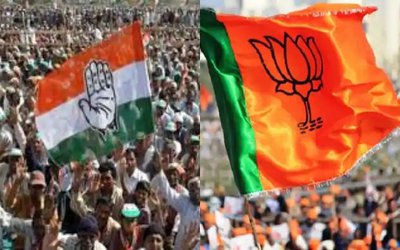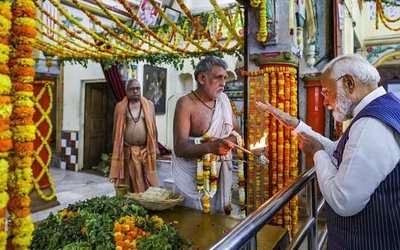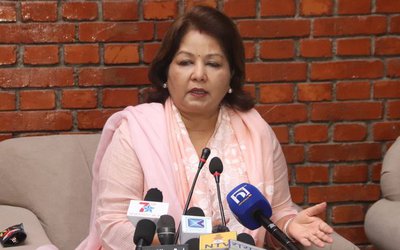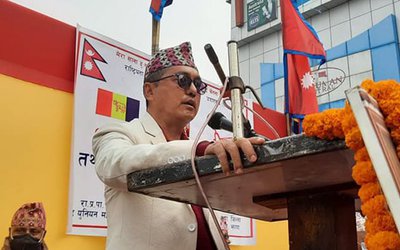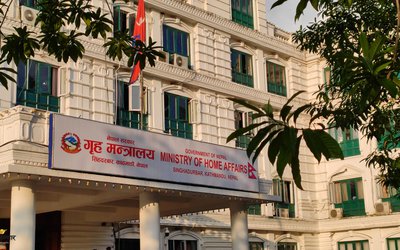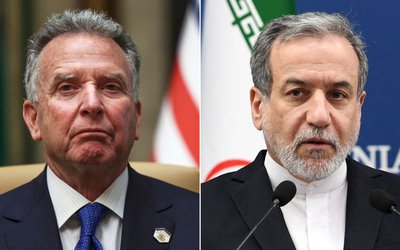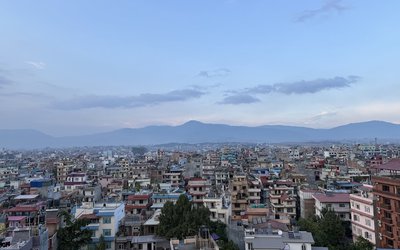
Vital medical supplies begin to reach India as new daily infections remain above 300,000 for sixth straight day.
The World Health Organization (WHO) has said the wave of COVID-19 infections in India is the result of a “perfect storm” of mass gatherings, more contagious variants and low vaccination rates.
India’s new coronavirus cases remained above 300,000 for a sixth consecutive day on Tuesday, while its armed forces have pledged urgent medical aid to help battle the staggering spike in infections overwhelming its hospitals and crematoriums.
The WHO is providing critical equipment and supplies to India, including 4,000 oxygen concentrators, which only require an energy source, WHO spokesman Tarik Jasarevic said.
India’s death toll is now pushing towards 200,000, and hospitals that do not have enough oxygen supplies and beds are turning away coronavirus patients.
Play Video
“Currently, part of the problem is that many people rush to the hospital (also because they do not have access to information/advice), even though home-based care monitoring at home can be managed very safely,” Jasarevic said.
Fewer than 15 percent of people infected with COVID-19 need hospital care and even fewer will need oxygen, he added.
Community-level centres should screen and triage patients and provide advice on safe home care, while information is also made available via hotlines or dashboards, he said.
“As is true in any country, WHO has said the combination of relaxing of personal protective measures, mass gatherings and more contagious variants while vaccine coverage is still low can create a perfect storm,” he said.
The crisis has led several countries to ban flights from India including Canada, Belgium and the United Arab Emirates.
Australia on Tuesday also suspended all direct passenger flights from India until May 15, Prime Minister Scott Morrison announced.
‘Devastating’ situation
A doctor in the Indian capital, New Delhi, said the situation in Indian hospitals is “totally devastating”, with ventilators and ICU beds fully occupied.
“There are no beds in the wards, our emergency room is full of patients, they have nowhere to go,” Sumit Ray told Al Jazeera via Skype.
“Our young resident doctors, nurses, are totally traumatised. They’re working really hard but they are devastated emotionally,” he added.
A doctor wearing personal protective equipment (PPE) looks after a COVID-19 patient in the intensive care unit of the Sharda Hospital, in Greater Noida on July 15, 2020 [Photo by Xavier Galiana/AFP]
The Indian government has called on its armed forces to help tackle the situation, described by many as the worst healthcare crisis in modern Indian history.
Chief of Defence Staff General Bipin Rawat said late on Monday that oxygen would be released from armed forces reserves and retired medical personnel would join health facilities that are struggling under the sheer number of cases.
Briefing Prime Minister Narendra Modi about the army’s preparations to deal with the crisis, Rawat said any oxygen cylinders the military had would be diverted to hospitals in need of the life-saving gas.
Many patients have been forced to turn to the black market where the prices of life-saving medicines and oxygen cylinders have skyrocketed.
Countries step up aid
Vital medical supplies began to reach India on Tuesday. A shipment from Britain, including 100 ventilators and 95 oxygen concentrators, arrived in the capital, New Delhi, though a spokesman for Prime Minister Boris Johnson said Britain had no surplus COVID-19 vaccine doses to spare.
France is sending eight large oxygen-generating plants this week while Ireland, Germany and Australia are dispatching oxygen concentrators and ventilators, an Indian foreign ministry official said, underlining the crucial need for oxygen.
India’s first “Oxygen Express” train pulled into New Delhi, laden with about 70 tonnes of oxygen from an eastern state, but the crisis has not abated in the city of 20 million people at the epicentre of the world’s deadliest wave of infections.
Senior US officials pledged sustained support for India in dealing with its coronavirus crisis and said the country was still at the “front-end” of the crisis.
White House National Security Council coordinator for the Indo-Pacific Kurt Campbell told a briefing call on the US response that President Joe Biden had told Indian Prime Minister Narendra Modi on a phone call on Monday: “You let me know what you need and we will do it.”
Biden said during a media briefing on Tuesday he had spoken at length with Modi, including as to when the US would be able to ship vaccines to the country of 1.3 billion people, and said it was his clear intention to do so.
The president gave no specific date for when vaccine shipments could begin, but White House press secretary Jen Psaki told reporters on Monday that the United States could start sending up to 60 million doses of AstraZeneca coronavirus vaccine as soon as the next few weeks.
Meanwhile, Biden said the US would begin shipping other supplies and rendering assistance to India, including Gilead Sciences’ antiviral drug remdesivir and mechanical parts needed for the machinery they have to build a vaccine.
Source: Aljazeera
- Iran, US to continue talks for nuclear deal
- Apr 20, 2025
- Putin announces Easter ceasefire in Ukraine
- Apr 20, 2025
- ICIMOD Says Hindu Kush Himalaya (HKH) Faces Lowest Rainfall In Third Conseqquetive Year
- Apr 19, 2025
- Tatopani Border Point Will Be Upgraded: Foreign Minister Dr. Deuba
- Apr 19, 2025
- Zelenskyy accuses China of supplying weapons to Russia
- Apr 19, 2025

